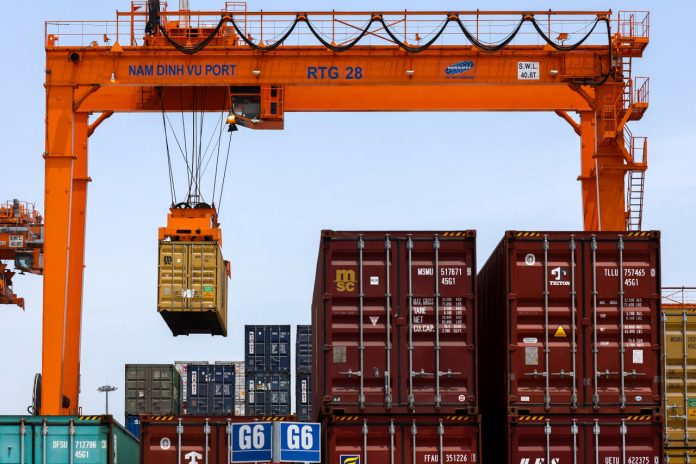Vietnam’s Ministry of Industry and Trade launched a sweeping crackdown on illegal transhipment of goods to the United States and other key markets, according to Reuters.
Dated and effective 15 April, the directive warns that fraudulent trade practices are likely to surge as countries ramp up protectionist measures, risking “complicated” sanctions unless urgently addressed. While not explicitly naming China, the document highlights concerns over goods being rerouted through Vietnam to dodge US tariffs – a longstanding issue that prompted the Trump administration to impose a 46% “reciprocal” tariff on Vietnamese imports.
Though paused until July, these tariffs threaten to destabilise Vietnam’s economic model, which thrives on exports to the US – its largest market – and foreign manufacturing investments.
Prime Minister Phạm Minh Chính ordered ministries to “strictly combat” trade fraud and counterfeiting ahead of critical tariff negotiations with Washington, the government confirmed. The directive mandates heightened scrutiny of imported raw materials, particularly those used in export production, to verify their true origin.
Customs officials and trade authorities have been instructed to conduct unannounced inspections and propose “specific measures to prevent illegal transhipment” where necessary.
New protocols will impose stricter oversight of factories and the issuance of “Made in Vietnam” labels, with a focus on firms reporting sudden spikes in applications for certificates of origin. The measures aim to curb misuse of Vietnam’s export credentials, a practice that has drawn repeated warnings from US trade regulators.
The measures follow an emergency government meeting in early April, convened hours after US President Donald Trump announced the tariffs. Analysts suggest Hanoi is walking a tightrope: balancing its pro-trade reforms with pressure to reassure Washington of its compliance.
The directive does not specify the countries from which transshipment fraud may originate. However, Vietnam’s imports of goods account for nearly 40% from China, with Washington openly accusing Beijing of using the Southeast Asian country as a transshipment point to evade US duties.
The Commerce Ministry directive was issued on the day Chinese President Xi Jinping wrapped up a trip to Vietnam during which several agreements were signed, including strengthening cooperation between agencies responsible for issuing certificates of origin.
